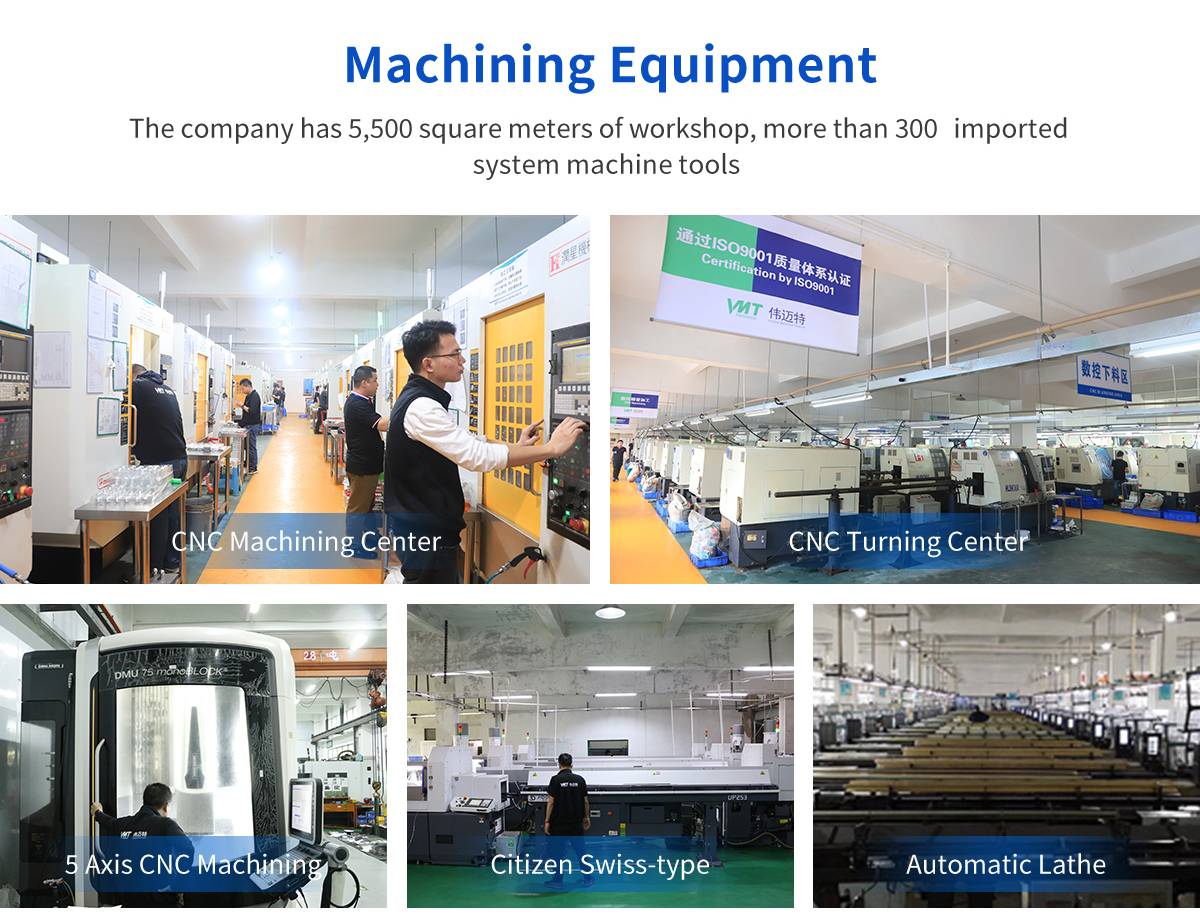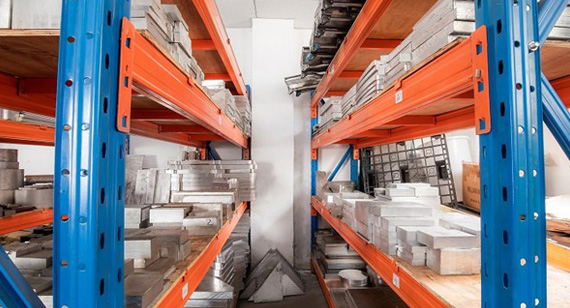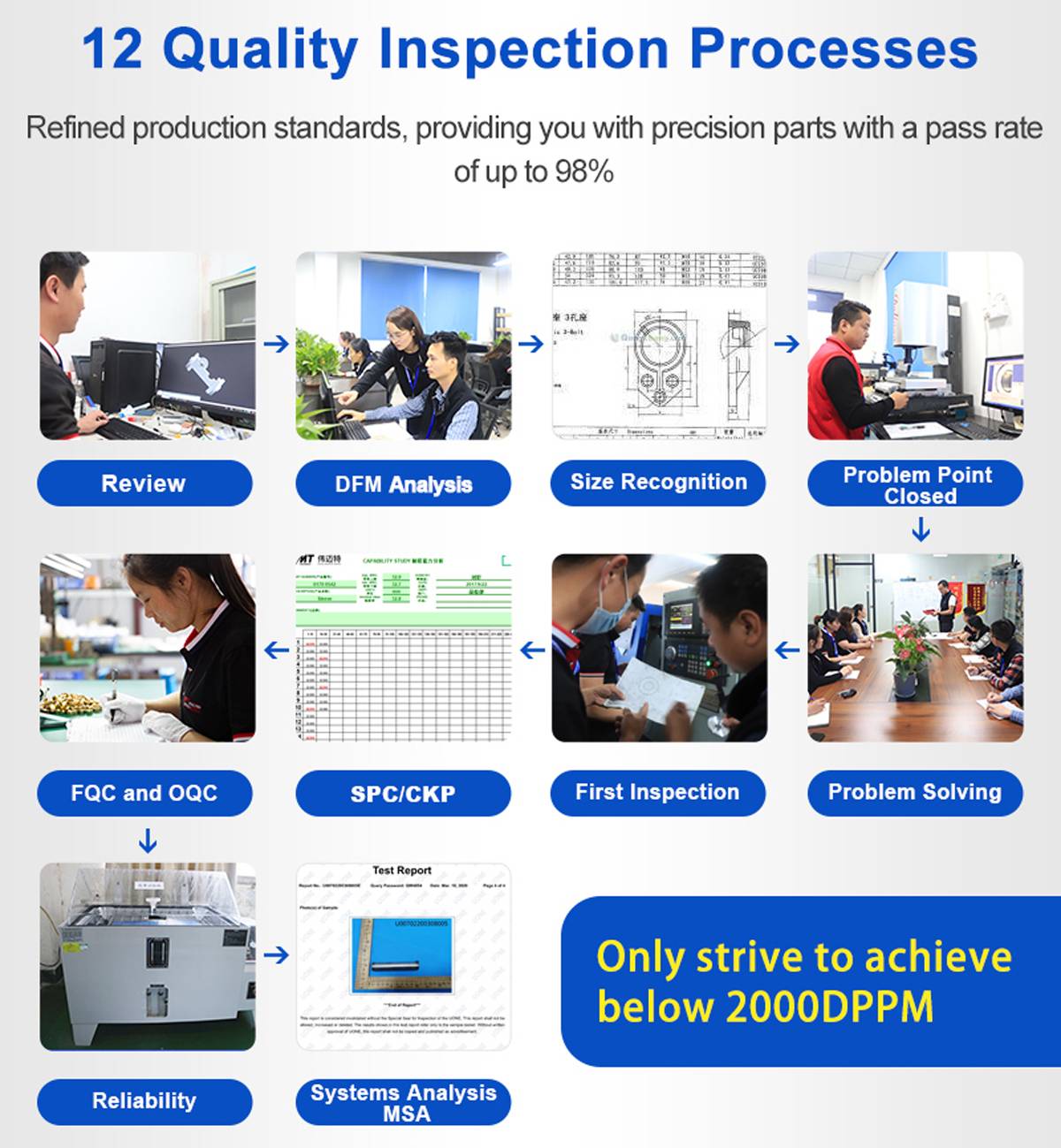15 years one-stop China custom CNC machining parts factory

Hey there I’m VMT Sam!
With 25 years of CNC machining experience we are committed to helping clients overcome 10000 complex part-processing challenges all to contribute to a better life through intelligent manufacturing. Contact us now
 109 |
Published by VMT at Apr 14 2024
109 |
Published by VMT at Apr 14 2024
In the realm of CNC precision parts machining, the success rate of prototyping directly impacts product quality, production efficiency, and customer satisfaction. However, when precision parts fail to meet specifications after multiple prototyping attempts, CNC precision parts machining factories need to delve into the underlying issues and take effective measures to address them. This article will explore, from various angles, the possible reasons for the failure of precision parts prototyping and propose corresponding solutions.

Equipment Precision and Stability Issues:
CNC machine tools are the core equipment for precision parts machining, and their precision and stability directly affect machining quality. If the machine tool's precision is inadequate or its stability is poor, even with the most accurate CNC programs, it's challenging to ensure the precision of the parts. Therefore, CNC precision parts machining factories should regularly inspect and calibrate machine tool precision to ensure optimal performance. Additionally, enhancing equipment maintenance can reduce precision degradation due to aging or wear.

CNC Program and Process Parameter Issues:
CNC programs guide CNC machine tools in machining, and the setting of process parameters directly affects process stability and part quality. Inappropriate CNC program coding or unreasonable process parameter settings can lead to errors or quality issues during machining. Therefore, CNC precision parts machining factories should optimize CNC programs to reduce redundant and complex actions, thereby improving machining efficiency. Moreover, setting cutting speeds, feed rates, cutting depths, and other process parameters reasonably according to the material, shape, and machining requirements of the parts ensures process stability and part quality.
Operator Skills and Experience Issues:
The skill level and experience of operators are crucial for ensuring the quality of CNC precision parts machining. If operators lack skills or experience, they will have difficulty accurately understanding and executing CNC programs or effectively handling anomalies during the machining process. Therefore, CNC precision parts machining factories should enhance operator training and education to improve their skill levels and operational norms. Establishing a comprehensive mentorship system where experienced employees mentor new ones in practical operations can elevate the overall team's skill level.
Raw Material Quality Control Issues:
The quality of raw materials directly affects the machining quality and performance of parts. If raw materials are defective or do not meet requirements, it's challenging to ensure part quality even with precise machining. Therefore, CNC precision parts machining factories should rigorously control the procurement and incoming inspection of raw materials to ensure their quality meets standard requirements. Additionally, strengthening cooperation and communication with suppliers to establish long-term stable partnerships ensures the stable supply and reliable quality of raw materials.

Quality Inspection and Control Issues:
Quality inspection is a critical means of ensuring the quality of CNC precision parts machining. Inadequate quality inspection or lax control can result in non-conforming parts entering subsequent processes or final products. Therefore, CNC precision parts machining factories should establish a sound quality inspection system for strict quality inspection of key processes and finished products during machining. Additionally, adopting advanced quality control technologies such as online inspection and automatic compensation improves the accuracy and efficiency of quality inspection.

Environmental and On-Site Management Issues:
Environmental factors and on-site management also significantly impact the quality of CNC precision parts machining. Factors such as temperature, humidity, and vibrations can affect the machining process, while chaotic on-site management may lead to errors and quality issues during machining. Therefore, CNC precision parts machining factories should optimize the production environment to minimize the impact of environmental factors on the machining process. Simultaneously, strengthening on-site management to ensure a clean, orderly, and safe production site is essential.
In conclusion, multiple failures in precision parts prototyping may involve issues in equipment, programs, personnel, raw materials, quality inspection, as well as environmental and management aspects. CNC precision parts machining factories should address these issues systematically and take corresponding measures. Through continuous improvement and optimization of production processes and technological capabilities, they can increase the success rate of parts prototyping, meet customer demands, and enhance competitiveness.
Ready To Start Your Next Project?
Get Instant Quote

Request a Free Quote
Send us a message if you have any questions or request a quote. We will get back to you ASAP!